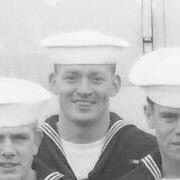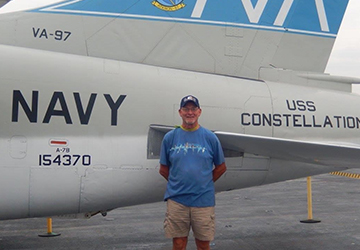
As the husband of a lung cancer survivor, I know that so much more needs to be done to accurately diagnose and treat this terrible disease. It took nine months before there was a definitive diagnosis of my wife’s first lung cancer tumor; six months later she faced a second diagnosis and a second surgery. My wife was fortunate as both tumors were stage I lung cancer. Her six-month CT scans have been stable since April 2013.
Both my wife and I were totally ignorant about this disease that entered our lives. After her diagnosis, she started to research lung cancer and discovered how truly devastating this cancer is. The lack of research funding and especially the stigma associated with this disease must be addressed. Many other diseases can be contributed to lifestyles, but none carry the stigma that lung cancer carries. The projected loss of 136,000 lives this year to this one cancer is unacceptable.
We‘ve learned through our research that members of the US Armed Forces have a 25% higher risk of developing lung cancer. As a Navy Veteran, I had no clue!

The Veterans Administration’s lung cancer screening has the same criteria as the government, and I do not qualify. With my risk factors of prior tobacco use and my military service, we are very concerned that I will also develop lung cancer. We applaud the formation of the Lung Cancer Research Program within the Department of Defense, but the current funding level is not appropriate for the health impact of lung cancer on our veterans. This is why we actively advocate to increase this research funding level!
Since we know US military members and our veterans are at a higher risk for this disease; we should do everything possible to ensure improved outcomes by expanded screening for early detection and the development of effective lung cancer treatments. We owe that to everyone who served our country.

Leave A Comment